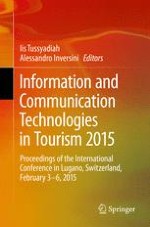2015 | OriginalPaper | Buchkapitel
OpeNER: Open Tools to Perform Natural Language Processing on Accommodation Reviews
verfasst von : Aitor García-Pablos, Montse Cuadros, Maria Teresa Linaza
Erschienen in: Information and Communication Technologies in Tourism 2015
Aktivieren Sie unsere intelligente Suche, um passende Fachinhalte oder Patente zu finden.
Wählen Sie Textabschnitte aus um mit Künstlicher Intelligenz passenden Patente zu finden. powered by
Markieren Sie Textabschnitte, um KI-gestützt weitere passende Inhalte zu finden. powered by
